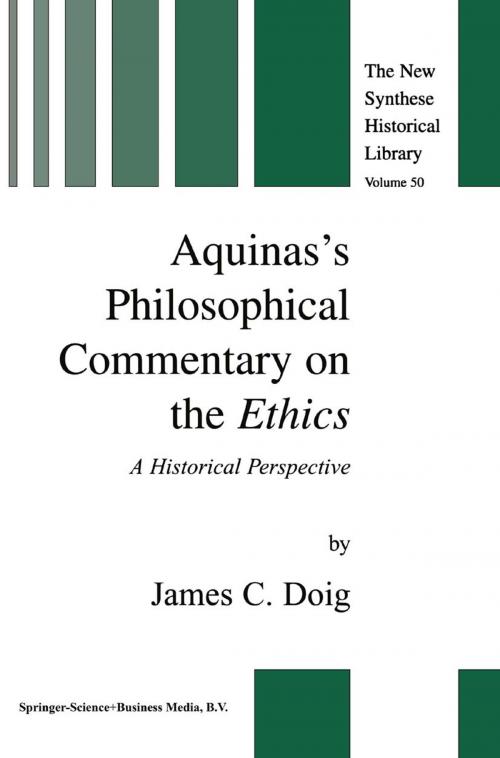Aquinas’s Philosophical Commentary on the Ethics
A Historical Perspective
Nonfiction, Religion & Spirituality, Philosophy, Medieval, History, Criticism, & Surveys| Author: | J.C. Doig | ISBN: | 9789401597715 |
| Publisher: | Springer Netherlands | Publication: | April 18, 2013 |
| Imprint: | Springer | Language: | English |
| Author: | J.C. Doig |
| ISBN: | 9789401597715 |
| Publisher: | Springer Netherlands |
| Publication: | April 18, 2013 |
| Imprint: | Springer |
| Language: | English |
Is Aquinas's Sententia libri Ethicorum an interpretation of Aristotle based on `principles of Christian ethics'? Or do we have in that work a presentation of the foundation of Aquinas's moral philosophy? Professor Doig answers these questions through an examination of the historical context within which the Sententia was composed.
In Chapters 1-2, the work's role as a corrective of earlier commentaries is established. Chapter 3, by examining philosophy at Paris between 1215 and 1283, reveals that the proposal by Aquinas of a moral philosophy would have been unexceptional. Chapter 4's investigation of the principles underlying the moral theory of the Sententia makes apparent that they were regarded by Aquinas as both philosophical and Aristotelian. The date to be assigned the composition of the Sententia is studied in Chapter 5, and the conclusion is drawn, that with some probability, the Sententia is its author's final proposal of moral doctrines. The closing Chapter offers a summary of that moral philosophy against the historical background brought out earlier.
Is Aquinas's Sententia libri Ethicorum an interpretation of Aristotle based on `principles of Christian ethics'? Or do we have in that work a presentation of the foundation of Aquinas's moral philosophy? Professor Doig answers these questions through an examination of the historical context within which the Sententia was composed.
In Chapters 1-2, the work's role as a corrective of earlier commentaries is established. Chapter 3, by examining philosophy at Paris between 1215 and 1283, reveals that the proposal by Aquinas of a moral philosophy would have been unexceptional. Chapter 4's investigation of the principles underlying the moral theory of the Sententia makes apparent that they were regarded by Aquinas as both philosophical and Aristotelian. The date to be assigned the composition of the Sententia is studied in Chapter 5, and the conclusion is drawn, that with some probability, the Sententia is its author's final proposal of moral doctrines. The closing Chapter offers a summary of that moral philosophy against the historical background brought out earlier.













![Cover of the book The Dogmatic Principles of Soviet Philosophy [as of 1958] by J.C. Doig](https://www.kuoky.com/images/2012/december/300x300/9789401036269-dEmL_300x.jpg)

